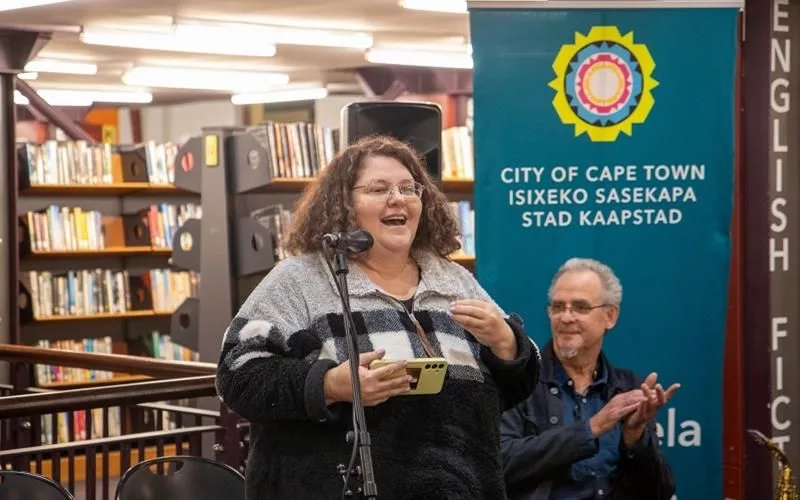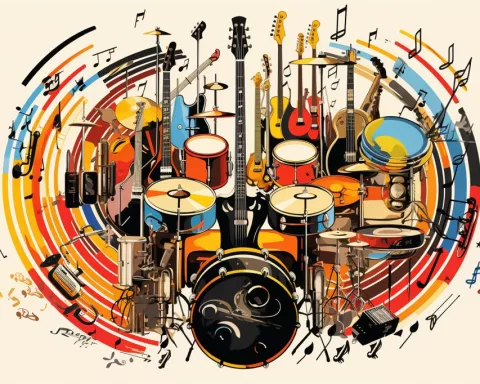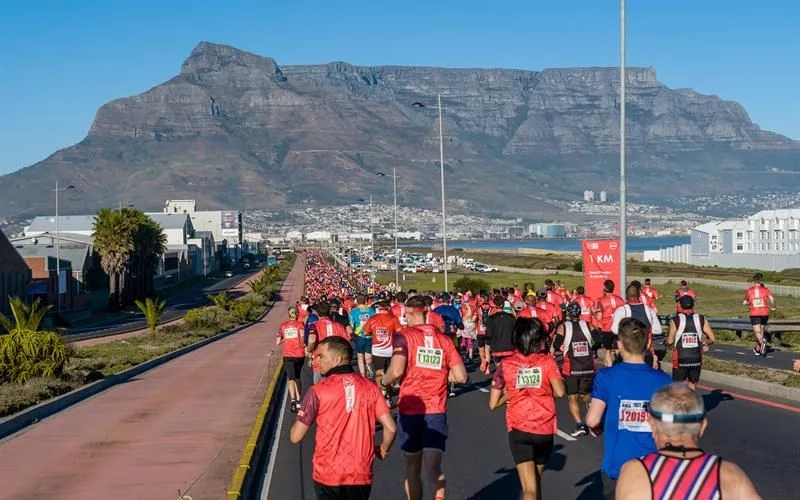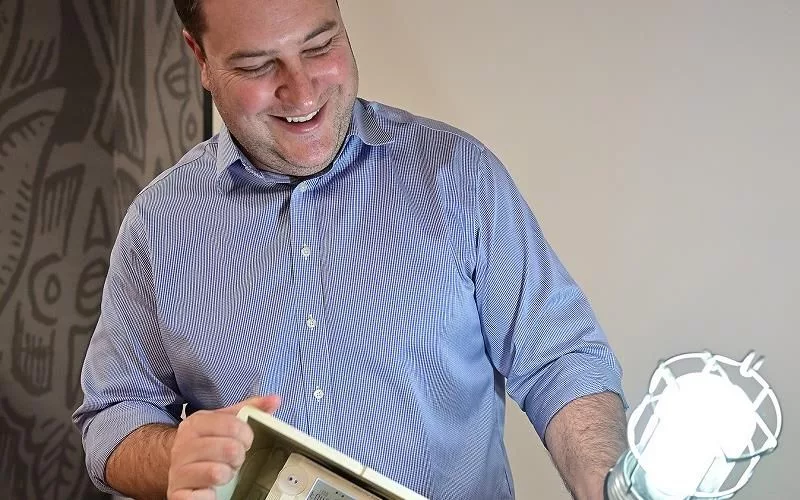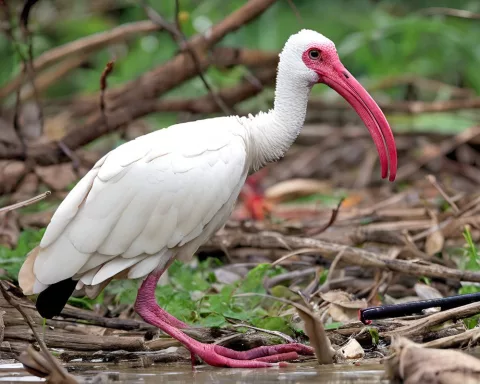The City of Cape Town’s Central Library has launched the Oral History Project, which preserves the stories of local musicians. This innovative project transforms library services into a platform for preserving and educating about music history. Video podcasts are available to the public on YouTube and linked to the Online Public Access Catalog, allowing everyone to experience the vibrant cultural history of Cape Town’s music community.
An Unconventional Melody: Cape Town’s Oral History Project
Discover how the Oral History Project, created by the City of Cape Town’s Central Library, is preserving the intricate and multifaceted narratives of the city’s local musicians. With video podcasts available to the public on YouTube and linked to the Online Public Access Catalog, this project immortalizes the stories of Cape Town’s musicians and transforms library services into a platform for preserving and educating about music history.
A New Rhythm in Cape Town’s Central Library
The city of Cape Town is alive with an unusual but enchanting rhythm. The rhythm is that of oral history, preserving the intricate and multifaceted narratives of its local musicians. This innovative project is an undertaking by the City of Cape Town’s Central Library, a significant cultural establishment in the city, recognised as a hub for knowledge enthusiasts and art aficionados.
During a sunny Tuesday in May, the Central Library was transformed into a unique performance venue. In the midst of whispered conversations and the sound of turning pages, the Oral History Project was launched, with the vibrant local singer Tina Schouw and the esteemed jazz pianist Andrew Lilley as the star performers.
The Oral History Project is the creative invention of Luke Townsend, a professional musician and the Music Services controller at the Library. This ambitious project was conceived in 2020 when Townsend was tasked with launching a project that would create a distinctive space for musicians in Cape Town’s historical tales.
The Elegant Simplicity of the Oral History Project
The project’s charm lies in its simplicity – interviewing the city’s famous musicians, recording their narratives and adventures, and transforming them into video podcasts. As Patricia van der Ross, Councillor for Community Services and Health, stated, these podcasts “would not only enhance the library service but also fill in some information gaps about Cape Town’s music history.” They are not just educational tools, but also cultural relics, aiding in the preservation of Cape Town’s vibrant cultural history, one interview at a time.
Over a span of four years, Townsend successfully interviewed and recorded the lives and careers of four groundbreaking Cape Town musicians: George Werner, a Cape jazz pianist and teacher; Wakhile Xhalisa, an Afro-jazz bass player; Andrew Lilley, a jazz pianist, composer and educator; and Tina Schouw, a singer, songwriter, composer and guitarist.
The Musical Journey of Andrew Lilley and Tina Schouw
Andrew Lilley, a premium pianist, renowned for sharing his knowledge on jazz at the College of Music, UCT since the early 1990s, holds an impressive music portfolio including two original composition albums. His recent album is a stunning fusion of solo piano pieces and improvisations. Lilley’s musical journey, as both a teacher and performer, is now accessible to the public for viewing and learning through the Oral History Project.
Contrastingly, Tina Schouw gained recognition during the struggle years as a protest singer. She was a leading voice at numerous political rallies and anti-apartheid events, both in Cape Town and during her international tours. Her music, a powerful fusion of folk-rock, jazz and World Music, led to three solo albums of original songs. Schouw’s tale of persistency and talent is now forever commemorated through this project.
Immortalizing the Stories of Cape Town’s Musicians
The Oral History Project, now accessible to the public on YouTube, and linked to the Online Public Access Catalog for easy access, has redefined library services, transforming them into a platform for preserving and educating about music history. The silent aisles of the Central Library now resonate with the narratives of Cape Town’s musicians, their melodies forever imprinted on the city’s cultural tapestry.
This venture goes beyond just lending books or providing information—it’s about giving voice to the unseen heroes of Cape Town’s music community, offering a stage for their stories to be heard, admired, and remembered. This is the symphony of the city’s musical history, unfolding in the heart of its library. The narrative of Cape Town’s music and its virtuosos has found a new, harmonious residence, and it is indeed a story worth listening to.
What is the Oral History Project in Cape Town?
The Oral History Project is an initiative by the City of Cape Town’s Central Library that preserves the stories of local musicians through video podcasts, transforming library services into a platform for preserving and educating about music history.
How can the public access the video podcasts from the Oral History Project?
The video podcasts from the Oral History Project are available to the public on YouTube and linked to the Online Public Access Catalog for easy access.
Who are some of the musicians interviewed for the Oral History Project?
Some of the musicians interviewed for the Oral History Project include George Werner, Wakhile Xhalisa, Andrew Lilley, and Tina Schouw.
What is the musical journey of Andrew Lilley?
Andrew Lilley is a premium pianist with an impressive music portfolio, including two original composition albums. He has been sharing his knowledge on jazz at the College of Music, UCT since the early 1990s. His recent album is a fusion of solo piano pieces and improvisations, and his musical journey as both a teacher and performer is accessible through the Oral History Project.
Who is Tina Schouw, and what is her musical style?
Tina Schouw gained recognition during the struggle years as a protest singer. Her music is a fusion of folk-rock, jazz, and World Music, and she has released three solo albums of original songs.
What is the significance of the Oral History Project in Cape Town’s cultural tapestry?
The Oral History Project offers a platform for the narratives of Cape Town’s musicians to be heard, admired, and remembered, immortalizing their stories and melodies on the city’s cultural tapestry. It transforms library services into a hub for preserving and educating about music history and gives voice to the unseen heroes of Cape Town’s music community.

